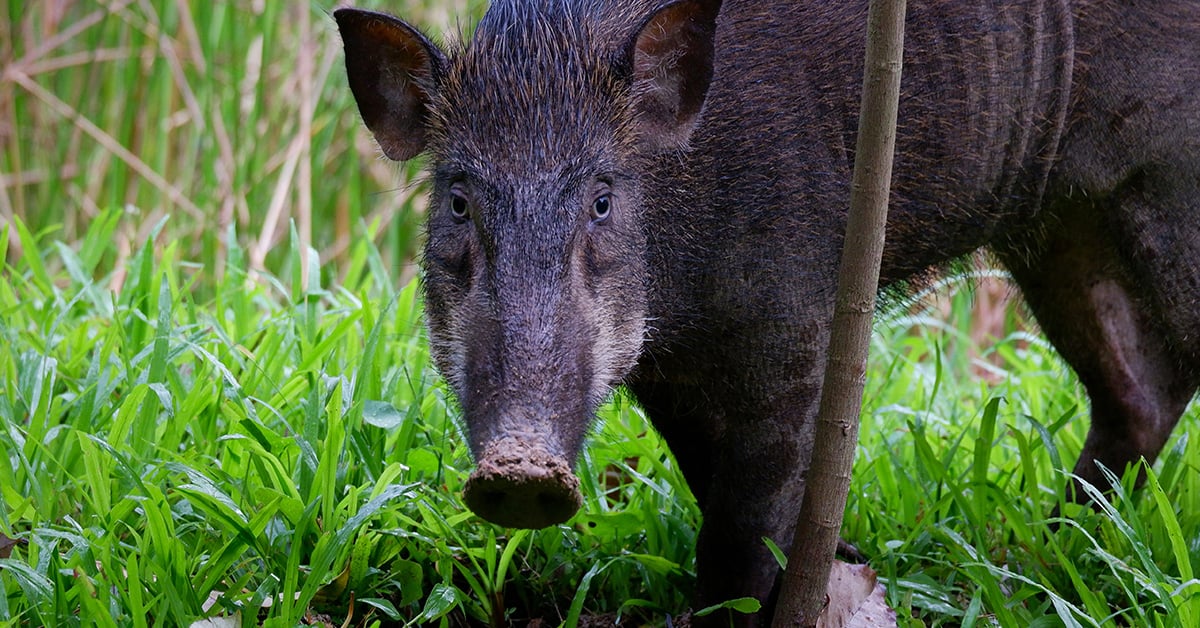Wild boars are scary.
Or cute, depending on how you see them.
On Thursday, a wild boar carcass was found.
It tested positive for African Swine Fever (ASF).
Poor boar.
Wild Boar Tested Positive for African Swine Fever Virus
According to the National Parks Board (NParks), the carcass was found in the northwest of Singapore.
The carcass had tested positive for the virus two days prior.
NParks said it has a biosurveillance system to detect animal diseases quickly.
What is African Swine Fever?
ASF is a disease caused by a virus of the same name.
Oh no, is ASF like swine flu?
Don’t worry, dear reader. Unlike swine flu, you can’t catch ASF.
ASF is a disease that only affects members of the pig family, such as wild boars.
It is not zoonotic, meaning that it doesn’t infect humans and is not a risk to your health or mine.
On the other hand, swine flu is a respiratory disease caused by the type A influenza virus that causes common influenza outbreaks among pigs that can infect humans.
You probably know swine flu as H1N1, which caused a pandemic in 2009.
So don’t worry about ASF.
While ASF is highly contagious among pigs, NParks noted that there are no pig farms in Singapore.
Wild Boars in Singapore
Wild boars are not an uncommon sight in Singapore.
They’re native to Singapore and have an omnivorous diet.
They are most active during dusk hours, which is why joggers usually report seeing wild boars on their evening runs.
Wild boars tend to end up on the grassy buffer zones between urban and forested areas as they forage for food. That’s why you see them around your neighbourhood.
Notably, they were believed to be extinct in Singapore.
It is theorised that current populations were started by individuals who swam in from Malaysia across the Johor Straits.
What to do When You See a Wild Boar
Beneath their tough exterior, wild boars are actually… pretty shy.
They’ll usually retreat into the safety of their forest abodes when feeling nervous.
However, they may attack if they feel threatened by your presence.
Especially if their piglets are involved.
In December 2022, a 72-year-old man had to undergo five stitches and surgery after a wild boar attack.
He was cycling when a wild boar charged towards him, sending him flying.
Wild boars are usually drawn into urban areas by food waste. Thus we must keep a safe distance from them and dispose of food properly.
Furthermore, keep calm and make any sudden movements that may provoke them.
NParks wrote, “Wild boars are native to Singapore and can be found in our nature reserves, parks, and other green spaces. NParks is closely monitoring the health of wild boars in these areas.”
It advised the public to stay on designated trails and to refrain from feeding wild boars or getting too close to them.
Though ASF does not pose a risk to public health, NParks has advised the public not to touch or pick up sick or dead animals.
If you encounter an animal that appears to be sick or dead, you should call the Animal Response Centre at 1800-476-1600.
Featured Image: Daryl Chng/ Shutterstock.com



